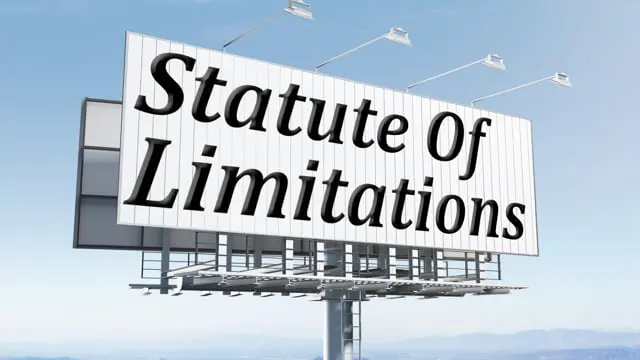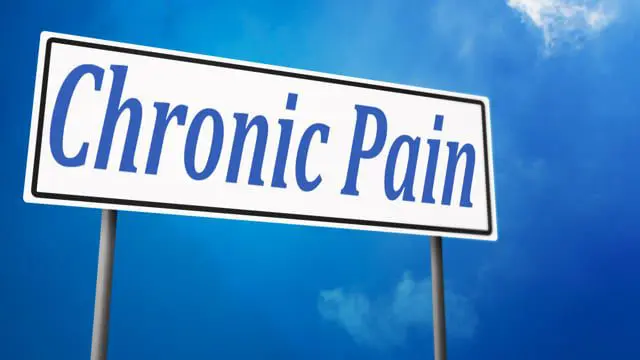Understanding Wrongful Death Lawsuits
Wrongful death lawsuits are legal actions taken by the survivors of an individual who has died due to the negligence or misconduct of another person or entity. These lawsuits aim to provide compensation for the loss suffered by the survivors and hold the responsible party accountable. Wrongful death claims can arise from various incidents, including car accidents, medical malpractice, workplace accidents, and defective products.
Eligibility for Filing a Wrongful Death Lawsuit
Determining who can file a wrongful death lawsuit is a critical aspect of these legal actions. Generally, the right to file a wrongful death lawsuit is granted to close family members of the deceased. These family members typically include:
- Spouses: In most states, the surviving spouse of the deceased has the primary right to file a wrongful death lawsuit. The spouse’s claim aims to compensate for the loss of companionship, financial support, and emotional distress caused by the untimely death.
- Children: Biological and legally adopted children of the deceased are also eligible to file a wrongful death lawsuit. The compensation sought by the children may cover the loss of parental guidance, financial support, and emotional suffering.
- Parents: If the deceased was unmarried and had no children, the surviving parents might have the right to file a wrongful death lawsuit. This is especially true if the deceased was a minor or financially supported their parents.
- Siblings: In some cases, siblings of the deceased may be eligible to file a wrongful death lawsuit, particularly if they were financially dependent on the deceased.
- Extended Family Members: In rare instances, other relatives such as grandparents or cousins may be granted the right to file a wrongful death lawsuit if they can demonstrate a significant financial or emotional dependence on the deceased.
Legal Requirements for Filing a Wrongful Death Lawsuit
To successfully file a wrongful death lawsuitEl eligible parties must meet certain legal requirements. These requirements vary by state but generally include the following:
- Proof of Negligence or Misconduct: The plaintiff must prove that the death of their loved one was caused by the negligent or intentional actions of the defendant. This often requires gathering evidence, such as medical records, accident reports, and witness testimonies.
- Establishing Causation: It must be demonstrated that the defendant’s actions directly led to the death of the individual. This involves showing a clear link between the defendant’s behavior and the fatal outcome.
- Timely Filing: Wrongful death lawsuits are subject to statutes of limitations, which set the timeframe within which a lawsuit must be filed. This period varies by state but typically ranges from one to three years from the date of death.
Role of a Wrongful Death Lawyer
A wrongful death lawyer plays a crucial role in guiding the eligible parties through the legal process of filing a wrongful death lawsuit. These specialized attorneys have extensive experience in handling complex wrongful death cases and can provide invaluable assistance in several ways:
- Asesoramiento y representación jurídicos: Wrongful death lawyers offer expert legal advice and represent the plaintiffs in court, ensuring their rights are protected throughout the legal proceedings.
- Investigation and Evidence Gathering: Experienced wrongful death lawyers conduct thorough investigations to gather the necessary evidence to build a strong case. This may involve consulting with medical experts, accident reconstruction specialists, and other professionals.
- Negotiation with Insurance Companies: Wrongful death lawyers often negotiate with insurance companies on behalf of the plaintiffs to secure fair compensation for their losses. This can include negotiating settlements to avoid lengthy court battles.
- Court Representation: If a settlement cannot be reached, wrongful death lawyers are prepared to represent the plaintiffs in court. They present the evidence, call witnesses, and make compelling arguments to support the wrongful death claim.
Types of Damages in Wrongful Death Lawsuits
Wrongful death lawsuits seek to compensate the surviving family members for the various losses they have suffered due to the death of their loved one. The types of damages that may be awarded in a wrongful death lawsuit include:
- Economic Damages: These damages cover the financial losses incurred by the survivors, such as the deceased’s lost wages, future earnings, and medical expenses related to the incident. Economic damages also include funeral and burial costs.
- Non-Economic Damages: Non-economic damages compensate for the intangible losses suffered by the survivors, including loss of companionship, emotional distress, and pain and suffering. These damages aim to provide some measure of solace for the emotional impact of the death.
- Daños punitivos: In cases where the defendant’s actions were particularly egregious or reckless, punitive damages may be awarded. These damages are intended to punish the defendant and deter similar behavior in the future.
Common Causes of Wrongful Death
Wrongful death can occur in various circumstances, and understanding the common causes can help in identifying potential wrongful death cases. Some of the common causes of wrongful death include:
- Accidentes de tráfico: Car accidents are a leading cause of wrongful death, often resulting from negligent driving, speeding, drunk driving, or distracted driving. Survivors of car accident victims can file wrongful death lawsuits against the at-fault drivers.
- Negligencias médicas: Medical errors, misdiagnoses, surgical mistakes, and other forms of medical negligence can lead to wrongful death. Families of patients who die due to medical malpractice can seek compensation through wrongful death claims.
- Workplace Accidents: Fatal workplace accidents, particularly in high-risk industries such as construction and manufacturing, can result in wrongful death claims. Employers may be held liable for failing to provide a safe working environment.
- Defective Products: Wrongful death can occur when individuals use defective or dangerous products. Manufacturers, distributors, and retailers may be held accountable for failing to ensure the safety of their products.
- Criminal Acts: Intentional acts of violence, such as homicide or assault, can lead to wrongful death. The perpetrators of these criminal acts can face wrongful death lawsuits in addition to criminal charges.
Filing a Wrongful Death Lawsuit: Step-by-Step Process
Filing a wrongful death lawsuit involves several steps, each of which is crucial to building a strong case. The process typically includes the following:
- Consultation with a Wrongful Death Lawyer: The first step is to consult with a knowledgeable wrongful death lawyer. During this consultation, the lawyer will assess the case, explain the legal options, and determine the eligibility of the potential plaintiffs.
- Investigation and Evidence Collection: The lawyer will conduct a thorough investigation to gather evidence supporting the wrongful death claim. This may involve obtaining medical records, accident reports, witness statements, and expert opinions.
- Filing the Lawsuit: Once sufficient evidence has been gathered, the lawyer will file a wrongful death lawsuit on behalf of the eligible plaintiffs. This involves drafting and submitting a complaint to the appropriate court, outlining the allegations against the defendant.
- Pretrial Proceedings: During the pretrial phase, both parties will engage in discovery, exchanging information and evidence relevant to the case. Depositions, interrogatories, and requests for documents are common aspects of this phase.
- Settlement Negotiations: Many wrongful death cases are resolved through settlement negotiations. The lawyer will negotiate with the defendant or their insurance company to reach a fair settlement that compensates the plaintiffs for their losses.
- Ensayo: If a settlement cannot be reached, the case will proceed to trial. During the trial, the lawyer will present the evidence, call witnesses, and make arguments to support the wrongful death claim. The court will then render a verdict and determine the appropriate damages.
Challenges in Wrongful Death Lawsuits
Wrongful death lawsuits can be complex and challenging to navigate. Some of the common challenges faced by plaintiffs in these cases include:
- Proving Negligence: Establishing negligence or misconduct on the part of the defendant can be difficult, especially in cases where the evidence is not clear-cut. Plaintiffs must provide compelling evidence to support their claims.
- Statutes of Limitations: Wrongful death lawsuits are subject to strict statutes of limitations, which vary by state. Failing to file a lawsuit within the prescribed timeframe can result in the case being dismissed.
- Carga emocional: The emotional toll of losing a loved one and pursuing a wrongful death lawsuit can be overwhelming for the surviving family members. The legal process can be lengthy and stressful, adding to the emotional burden.
- Financial Costs: Pursuing a wrongful death lawsuit can be costly, especially if the case goes to trial. Legal fees, expert witness fees, and other expenses can add up, making it important for plaintiffs to have a clear understanding of the potential costs involved.
Importance of Experienced Legal Representation
Given the complexities and challenges of wrongful death lawsuits, it is crucial for plaintiffs to seek experienced legal representation. A skilled wrongful death lawyer can provide the necessary expertise and support to navigate the legal process effectively. Key benefits of hiring an experienced lawyer include:
- Expert Knowledge: Experienced wrongful death lawyers have a deep understanding of the legal principles and procedures involved in wrongful death cases. They can provide valuable guidance and advice throughout the legal process.
- Resource Access: Established wrongful death lawyers have access to a network of resources, including expert witnesses, investigators, and medical professionals. These resources can be instrumental in building a strong case.
- Habilidades de negociación: Skilled wrongful death lawyers are adept at negotiating with insurance companies and defendants to secure fair settlements. They can advocate for the plaintiffs’ best interests and ensure they receive the compensation they deserve.
- Trial Experience: If the case goes to trial, experienced wrongful death lawyers have the litigation skills needed to present a compelling case in court. They can effectively argue the plaintiffs’ position and strive for a favorable outcome.
Conclusión
Who is eligible to file a wrongful death lawsuit with a wrongful death lawyer is a critical question that determines the course of legal action for survivors seeking justice for their loved one’s untimely death. The eligibility criteria, legal requirements, and the role of a wrongful death lawyer are essential components of these cases. By understanding the complexities of wrongful death lawsuits and seeking experienced legal representation, survivors can navigate the legal process more effectively and achieve a measure of justice for their loss.








